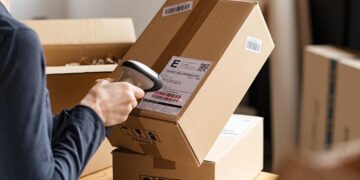Finding a reliable locksmith in Virginia can feel hard, especially when you are locked out or worried about home or office security. This guide explains what “Prime Locksmith – VA” style services usually include, how to check a company’s details in Virginia, and smart steps to stay safe and save money. It uses clear, B1-level English and links to trusted sources so you can verify key points yourself.
Who is “Prime Locksmith – VA”?
“Prime Locksmith” is a common business name used by more than one company. One listing for Prime Locksmith LLC shows an address at 4511 Glenwood Dr, Alexandria, VA 22310 with phone (571) 551-5675. This appears on MapQuest and other business directories.
Because the name is generic, always confirm you are calling the right company for your city. Check the street address and phone number on at least two sources before you book a service. Directory records can be helpful, but they may be out of date, so a quick phone call is still wise.
Some articles also describe “Prime Locksmith – VA” as a 24/7, statewide service (home, car, and business). Treat these as marketing summaries and verify service areas and prices directly with the company you plan to hire.
Services you can expect
Most Virginia locksmiths with “Prime” branding (and similar local firms) offer:
- Emergency lockout help (home, car, office)
- Lock repair and replacement (deadbolts, cylinders, smart locks)
- Key cutting and duplication
- Rekeying after a move or staff change
- Automotive keys and fobs (when supported)
- Commercial security (master key systems, access control)
One example provider that advertises in several VA cities lists emergency, automotive, and commercial work across Northern Virginia and Hampton Roads. Use such pages to understand common services, but confirm the exact menu with the specific company you choose.
How locksmiths are regulated in Virginia
Virginia defines what a locksmith is and sets training and background rules through the Virginia Department of Criminal Justice Services (DCJS). DCJS says a locksmith is anyone who performs locksmith services or advertises as a locksmith. This matters because it covers people who use different words (for example “security technician”) but still do locksmith work.
DCJS also explains that a person may work up to 90 consecutive days while completing the minimum training, as long as their fingerprints were submitted for a criminal background check. This helps you understand why a newer technician might still be on the job but they should be in the DCJS process. Ask the company for proof.
Trade publications often summarize Virginia’s rules too. For instance, Locksmith Ledger notes training hours and other eligibility items. Use DCJS as your main check, but trade summaries can add context when you compare companies.

Practical steps to check
- Ask for the technician’s full name and the company’s legal name before they arrive.
- Request confirmation of DCJS compliance (training/registration in process, when relevant).
- Get a written estimate that lists the service, parts, and any emergency or mileage fee.
DCJS and the Virginia Attorney General’s Office also post consumer information that can guide you if something feels wrong.
Red flags and how to avoid scams
Sadly, locksmith scams do exist in many states. Common signs include a very low phone quote that becomes a high bill on site, techs arriving in unmarked cars, and cash-only demands after drilling a lock that did not need drilling. Consumer guides explain how to spot these problems and how to report them.
Official resources from the Virginia Attorney General share tips on scams in general and how to file a complaint if needed. Keep those links handy.
Simple safety tips:
- Check two sources for the company’s address and phone.
- Ask for the final price range before the tech starts work.
- Say no to unnecessary drilling. Many modern locks can be opened without drilling.
- Get an itemized invoice with the business name, phone, and address.
What a fair visit looks like
A good Virginia locksmith will:
- Confirm your ID and property rights (this protects you and your neighbors).
- Diagnose first, then explain options (pick/rekey/replace).
- Give a clear price before work starts.
- Do tidy, non-destructive work when possible.
- Test keys and locks with you before leaving.
- Provide a receipt with warranty notes.
Use your receipt to track part numbers and to claim any warranty later.
About pricing (and how to manage it)
Prices vary by time of day, distance, and the lock type. Emergency visits at night or during holidays usually cost more. Smart locks, high-security cylinders, and car transponder keys can also raise the price. To save money:
- Ask for a rekey when the hardware is still good.
- Bundle tasks (for example, rekey all door locks in one visit).
- Compare two quotes by phone for standard jobs.
- Ask about travel fees and after-hours surcharges up front.
Consumer guides suggest getting an estimate in writing and being careful with “too good to be true” ads. If you face a problem, contact the Virginia Attorney General’s Consumer Protection team.
Service area notes for “Prime Locksmith – VA”
If you are near Alexandria, the Prime Locksmith LLC listing at 4511 Glenwood Dr is a good starting point for a call or map check. Verify hours and service radius when you call. Some directories show the same address and phone, which helps confirm you have the right business.
If you are in other cities (Arlington, Richmond, Virginia Beach, etc.), you may find other companies using “Prime” in their brand or marketing. Read their websites carefully and confirm they truly serve your neighborhood. Some pages advertise multi-city coverage across Virginia, but the actual team and dispatch location can differ.
When to choose rekey, repair, or replace
- Rekey after a move, tenant change, or lost key. It is cheaper than full replacement and keeps your existing hardware.
- Repair when the lock sticks, the latch is misaligned, or a part is worn.
- Replace if the lock body is damaged, the cylinder is broken, or you want a smart lock with codes and logs.
A good technician will explain the pros and cons in simple terms and show you the worn or broken parts.
Smart locks in simple words
Smart locks let you open with a code or phone and share temporary codes with guests or staff. Ask your locksmith which models work best with your door and deadbolt. You should also ask about battery life, offline backup, and what happens if the app fails. Many Virginia locksmiths install these every day, so they can explain it in plain language.
Final checklist before you book
- Company name, address, and phone match on two sources.
- You asked about DCJS status and training.
- You have a clear estimate with likely total.
- You know the service window and any after-hours fee.
- You will get an itemized receipt.
Frequently Asked Questions (FAQs)
- Is “Prime Locksmith – VA” one single company?
Not always. “Prime Locksmith” is a common name. One listing in Alexandria shows Prime Locksmith LLC at 4511 Glenwood Dr with phone (571) 551-5675. Always confirm the business details for your city. - How do I check if a locksmith is legit in Virginia?
Ask for the legal business name, check the address and phone in at least two places, and ask about DCJS training/registration. Keep a copy of the written estimate and receipt. - Does Virginia require training or background checks?
Yes. DCJS says a person may work up to 90 days while finishing compulsory training, provided fingerprints were submitted for a background check. - What services do most VA locksmiths offer?
Emergency lockouts, rekeying, lock repair/replacement, key cutting, car key help, and commercial systems like master keys and access control. Some providers advertise multi-city coverage; confirm locally. - How can I avoid a locksmith scam?
Be careful of very low phone quotes, cash-only demands, and unmarked vehicles. Ask for a written price before work starts. Use official consumer resources if you need to report an issue. - Should my lock be drilled?
Often no. Many locks can be opened without drilling. Drilling should be the last option, with your approval and a clear price for replacement parts. - What is rekeying and when should I choose it?
Rekeying changes the pins inside the lock so old keys no longer work. It is a smart, lower-cost option after a move or when keys are lost. - Can a locksmith make a car key or fob?
Many can, but not all models. Ask on the phone: give your car’s year, make, and model. Some Virginia providers list automotive services clearly; check before they drive out. - How much does a locksmith cost in Virginia?
Prices vary by time, distance, and the lock. Emergency nights/weekends usually cost more. Always ask for a total estimate and itemized receipt. Consumer guides recommend getting the number in writing. - Who can I contact if I have a complaint?
Reach out to the Virginia Attorney General’s Consumer Protection team for help and to file a complaint. Keep your receipt and any messages with the company.
Relatable topic: Why Does Ozdikenosis Kill You, SFM Compile, dhilisatta.com














































